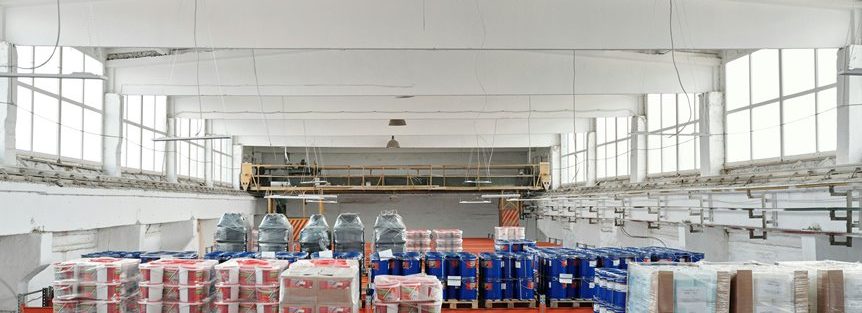At Novatia Consulting, we offer specialized feasibility study services for the packaging materials manufacturing industry in Nigeria. Given the sector's projected growth to $12 billion by 2025, it's essential to understand market dynamics and consumer preferences. Our extensive analysis includes evaluating supply chain logistics, financial modeling for investment viability, and identifying potential manufacturing challenges. We also focus on sustainability trends, helping businesses incorporate eco-friendly practices. With our expertise, we guide you through strategic decisions for success. Explore how our insights can enable your manufacturing initiatives and uncover deeper insights into the packaging landscape.
Key Takeaways
- Novatia Consulting conducts comprehensive market analyses to identify trends and opportunities in Nigeria's packaging materials sector.
- The firm provides financial modeling services to assess investment viability and potential return on investment (ROI).
- Risk assessment services identify potential challenges and develop strategies to mitigate them in the manufacturing process.
- Novatia evaluates supply chain dynamics and logistics to enhance efficiency and effectiveness in packaging material production.
- The consulting firm specializes in assessing biodegradable and sustainable packaging options, aligning with market demand for eco-friendly solutions.
Overview of Feasibility Studies
When we talk about feasibility studies, it's essential to recognize that they play a vital role in assessing the viability of any project, particularly in the packaging materials manufacturing sector in Nigeria. These studies provide a structured approach to analyzing various elements that influence the project's success.
One of the key components we focus on is market analysis. It helps us understand the current demand for packaging materials, identify potential customers, and evaluate competitors in the industry. By gathering and analyzing data, we can pinpoint market trends and consumer preferences, ensuring our project corresponds with market needs.
In addition to market analysis, we must also examine production techniques. Understanding the various methods of production available can greatly impact the overall feasibility of our project. We review the cost-effectiveness, efficiency, and sustainability of different techniques to determine the best fit for our objectives.
Ultimately, a thorough feasibility study allows us to make informed decisions, minimizing risks and maximizing potential returns. By integrating these vital elements, we can confidently move forward with our packaging materials manufacturing initiatives in Nigeria.
Importance of Packaging Materials
Packaging materials are vital to the success of any product, serving not just as a protective barrier but also as an important marketing tool. We recognize that effective packaging innovations can greatly influence consumer preferences, making choices easier and more appealing. The design aesthetics of packaging can improve brand recognition, and when coordinated with branding strategies, it solidifies a product's identity in the marketplace.
Moreover, we can't overlook the environmental impact of our packaging decisions. Sustainable materials not only resonate with eco-conscious consumers but also reflect our commitment to responsible production. Material durability guarantees that products reach consumers in ideal condition, improving satisfaction and reducing waste.
Cost efficiency plays an important role in our packaging processes as well. By integrating advanced technology, we can streamline production while addressing market segmentation effectively. Tailoring packaging to different consumer demographics allows us to cater to specific needs and preferences, maximizing our market reach.
Market Trends in Nigeria
As we consider the importance of packaging materials, it's imperative to understand the current market trends shaping the industry in Nigeria. Significantly, consumer preferences are evolving towards sustainable and eco-friendly packaging solutions. This shift is driving packaging innovations that cater to environmentally conscious buyers, urging manufacturers to adopt more sustainable practices.
Market segmentation further reveals that different sectors, such as food and beverage, pharmaceuticals, and cosmetics, have unique packaging needs. A thorough competitive analysis highlights that local manufacturers are increasingly facing pressure from imported materials, prompting a rise in import trends. However, this also opens up export opportunities for Nigerian manufacturers who can provide quality packaging solutions at competitive prices.
In response to these dynamics, companies are adjusting their pricing strategies to remain attractive in both local and international markets. Additionally, the distribution channels are expanding, utilizing e-commerce platforms and direct-to-consumer models to reach a broader audience efficiently.
Key Challenges in Manufacturing
While we acknowledge the growing demand for packaging materials in Nigeria, we must also confront the key challenges that manufacturers face in meeting this demand. One significant issue is the inefficiency of the supply chain, which often leads to delays and increased costs. Without robust logistics, manufacturers struggle to maintain operational efficiency, ultimately affecting their ability to respond to customer demand.
Furthermore, production technology is often outdated, hindering innovation strategies that could improve product differentiation. Manufacturers need to invest in modern technology to boost productivity and maintain quality control standards. However, allocating resources effectively remains a challenge, especially in a competitive market where margins are thin.
Workforce training is another critical factor; without skilled labor, even the best technology won't yield ideal results. The lack of ongoing training programs impacts overall production quality and efficiency. Additionally, market competition is fierce, leading to pressure on pricing and quality that can stifle creativity and innovation.
Novatia Consulting's Expertise
With a thorough understanding of the local market dynamics and manufacturing landscape, Novatia Consulting offers unparalleled expertise in maneuvering the complexities of packaging materials production in Nigeria. Our team specializes in conducting detailed market analysis, allowing us to identify key trends, customer preferences, and competitive pressures specific to the Nigerian context. This insight is critical for companies looking to enter or expand within the packaging sector.
We leverage advanced manufacturing technologies to optimize production processes, ensuring that our clients benefit from improved efficiency and cost-effectiveness. By staying abreast of global advancements in manufacturing, we help businesses adopt best practices tailored to local needs. Our expertise extends to evaluating the feasibility of various packaging materials, from biodegradable options to traditional plastics, ensuring our clients make informed decisions that correspond with market demands.
Moreover, our analytical approach enables us to assess potential risks, regulatory requirements, and supply chain logistics, providing a thorough overview that supports strategic planning. Ultimately, our goal is to equip our clients with the knowledge and tools necessary for success in the competitive packaging materials industry in Nigeria, ensuring sustainable growth and profitability.
Steps in Feasibility Studies
Typically, conducting a feasibility study involves several essential steps that guarantee a thorough evaluation of potential projects in the packaging materials sector. First, we initiate data collection to gather relevant information about market trends, potential competitors, and customer needs. This is followed by stakeholder involvement, where we consult with key stakeholders to coordinate project goals and expectations.
Next, we perform an extensive market analysis to understand demand dynamics and identify opportunities. Concurrently, we develop financial projections to assess the economic viability of the project, ensuring we account for all costs and potential revenues.
Site selection is then undertaken, evaluating locations based on logistics, accessibility, and local regulations. We also implement timeline estimation, outlining project milestones for timely execution.
Effective resource allocation is vital at this stage, ensuring that we utilize available resources efficiently. Additionally, we participate in competitive analysis to measure our project against industry standards.
Economic Impact Assessment
Evaluating the economic impact of packaging materials manufacturing in Nigeria involves a thorough examination of both direct and indirect effects on the local economy. We see that this sector plays a vital role in driving economic growth by stimulating demand for raw materials and services. As investment opportunities expand, we can expect significant job creation across various skill levels, providing livelihoods for many.
Furthermore, effective resource allocation within the industry can lead to improved productivity and efficiency. By optimizing supply chains and utilizing local resources, manufacturers not only reduce costs but also contribute to community development. This fosters a more robust local economy, where businesses thrive and residents benefit.
We must also consider the broader implications on environmental sustainability. As packaging materials manufacturing evolves, there's a growing emphasis on using eco-friendly materials and practices, which can positively influence the community's health and welfare. Ultimately, evaluating the economic impact of this manufacturing sector reveals its potential to transform Nigeria's economic landscape, creating a ripple effect that benefits various stakeholders while promoting responsible growth. In this way, we can synchronize industry progress with the sustainable development goals that are essential for our future.
Sustainability Considerations
Sustainability considerations play an indispensable role in the packaging materials manufacturing sector in Nigeria, as we increasingly recognize the importance of environmentally responsible practices. By integrating eco-friendly materials into our production processes, we can greatly reduce our environmental footprint. The demand for biodegradable and recyclable packaging options is growing, and as manufacturers, it's our responsibility to adapt to these trends.
Utilizing sustainable materials not only meets consumer expectations but also corresponds with global standards for waste reduction. We should focus on sourcing raw materials that minimize environmental harm, such as plant-based plastics and recycled content. This shift not only improves our brand image but also positions us competitively in an evolving market.
Moreover, implementing strategies for waste reduction throughout our manufacturing processes can lead to greater efficiency and lower costs. By optimizing production techniques and reducing packaging waste, we contribute to a circular economy that benefits both our business and the planet. Ultimately, sustainability isn't just a trend; it's a vital aspect of our operational strategy that can drive long-term success in Nigeria's packaging materials sector. Embracing these practices will help us build a resilient and responsible industry for the future.
Cost Analysis and Budgeting
Cost analysis and budgeting are vital components of our packaging materials manufacturing venture in Nigeria. By conducting thorough cost estimation, we can identify all potential expenses associated with our operations, from raw materials to labor and overhead costs. This detailed process allows us to pinpoint areas where we can optimize spending, guaranteeing our financial resources are used effectively.
When it comes to budget allocation, it's important that we distribute our funds wisely across various departments. Each segment of our production process, including design, manufacturing, and distribution, requires careful consideration of its unique costs. We must also factor in unexpected expenses by establishing a contingency fund, which can safeguard our operations against unforeseen challenges.
Furthermore, we should continually revisit our budget to adapt to market fluctuations and changes in demand. By maintaining a flexible budgeting approach, we'll guarantee that our packaging materials manufacturing venture remains both competitive and profitable in the dynamic Nigerian market. With diligent cost analysis and strategic budget allocation, we can lay a strong financial foundation for our business, paving the way for sustainable growth and success.
Regulatory Framework in Nigeria
Maneuvering Nigeria's regulatory landscape is fundamental for our packaging materials manufacturing venture. We must prioritize regulatory compliance to synchronize with national packaging standards established by organizations like the Standards Organization of Nigeria (SON). Understanding these standards guarantees our products meet market expectations while adhering to quality assurance protocols.
Additionally, we need to traverse the environmental regulations that govern manufacturing processes. These regulations are designed to minimize our ecological footprint and promote sustainability, which is increasingly significant for consumer acceptance. Industry certifications will be essential as well, as they not only improve our credibility but also facilitate easier market access.
Government policies play a significant role in shaping our operational framework. We must stay informed about any changes, especially regarding import restrictions that could impact our raw material sourcing strategies. Moreover, adhering to safety regulations is non-negotiable; it safeguards our workforce and end-users alike.
Ultimately, a thorough understanding of this regulatory framework will not only protect us legally but also position us as a responsible and reputable player in Nigeria's packaging industry. Let's commit to staying informed and compliant as we initiate this journey.
Risk Management Strategies
Effective risk management strategies are crucial for guaranteeing the success of our packaging materials manufacturing venture in Nigeria. To maneuver the complexities of this industry, we must conduct thorough risk assessments that identify potential threats, including market fluctuations, supply chain disruptions, and regulatory changes. By understanding these risks, we can develop targeted mitigation techniques that minimize their impact on our operations.
One key approach is to broaden our supplier base, which can safeguard against disruptions in the supply chain. This guarantees we're not overly reliant on a single source for raw materials. Additionally, implementing robust quality control measures can prevent product defects, reducing the risk of costly recalls and damage to our reputation.
We should also consider investing in technology to improve our production processes, as this can lead to greater efficiency and reduced operational risks. Furthermore, we ought to establish contingency plans that outline clear steps to take in response to identified risks, guaranteeing that we're prepared to act swiftly.
Case Studies and Success Stories
Examining case studies and success stories from the packaging materials manufacturing sector can provide invaluable insights into best practices and innovative strategies. We've seen how companies that embrace packaging innovations consistently outperform competitors. For instance, a local manufacturer successfully leveraged technology trends to improve production efficiency, reducing costs while maximizing output.
By conducting thorough competitive analysis, they identified market opportunities that allowed them to introduce eco-friendly packaging options, appealing to increasingly environmentally-conscious consumers. This shift not only met customer insights but also positioned them as leaders in sustainable practices, attracting significant investment potential.
Another compelling example involves a firm that utilized design trends to revamp their product line. By collaborating with designers to create visually appealing packaging, they tapped into a new demographic, increasing their market share substantially.
These case studies highlight the importance of a robust supply chain and the need for agility in adapting to changing market demands. As we analyze these success stories, it becomes clear that understanding growth potential and responding to consumer preferences are critical for sustained success in Nigeria's packaging materials manufacturing landscape.
Frequently Asked Questions
What Specific Types of Packaging Materials Does Novatia Consulting Focus On?
When we explore the types of packaging materials in today's market, we often find a strong emphasis on sustainable materials. We've noticed that companies are increasingly adopting eco-friendly options, corresponding with market trends that prioritize environmental responsibility. From biodegradable films to recycled cardboard, these materials not only meet consumer demand but also improve brand reputation. As we analyze these trends, we see a clear shift towards innovative, sustainable packaging solutions that cater to evolving market needs.
How Long Does a Typical Feasibility Study Take to Complete?
When we consider the feasibility duration for a typical study, it generally spans several weeks to a few months. This timeframe includes key study phases like market analysis, financial assessment, and risk evaluation. Each phase is essential for guaranteeing a thorough understanding of the project's viability. By breaking down the study into these detailed components, we can better gauge the overall timeline and guarantee completeness in our evaluation process.
What Industries Can Benefit From Packaging Materials Feasibility Studies?
When we consider industries that can benefit from packaging materials feasibility studies, it's clear that the food industry, pharmaceutical packaging, and cosmetic containers all stand out. These sectors require an in-depth analysis of sustainable materials, market trends, and production techniques to guarantee compliance and efficiency. By examining these factors, we can identify opportunities for innovation and cost savings, ultimately enhancing product integrity and consumer satisfaction across these essential industries.
Are There Any Grants Available for Packaging Materials Manufacturing in Nigeria?
When exploring grant opportunities for packaging materials manufacturing in Nigeria, we'll find several potential funding sources. Government initiatives often support local manufacturing, especially in sustainable packaging. Additionally, international organizations may offer grants aimed at promoting entrepreneurship in developing economies. It's crucial for us to research specific programs that correspond with our business goals, as these funds can greatly improve our capacity to innovate and grow within the industry.
Can Novatia Consulting Assist With Securing Funding for Packaging Projects?
We recognize that securing funding for packaging projects can be challenging. At Novatia Consulting, we're committed to assisting you in identifying effective funding strategies tailored to your specific needs. Our experts will conduct thorough project evaluations to pinpoint potential funding sources and guarantee your project's viability. With our guidance, we can help you traverse the complexities of funding and improve your chances of success in the packaging industry. Let's explore the possibilities together!







